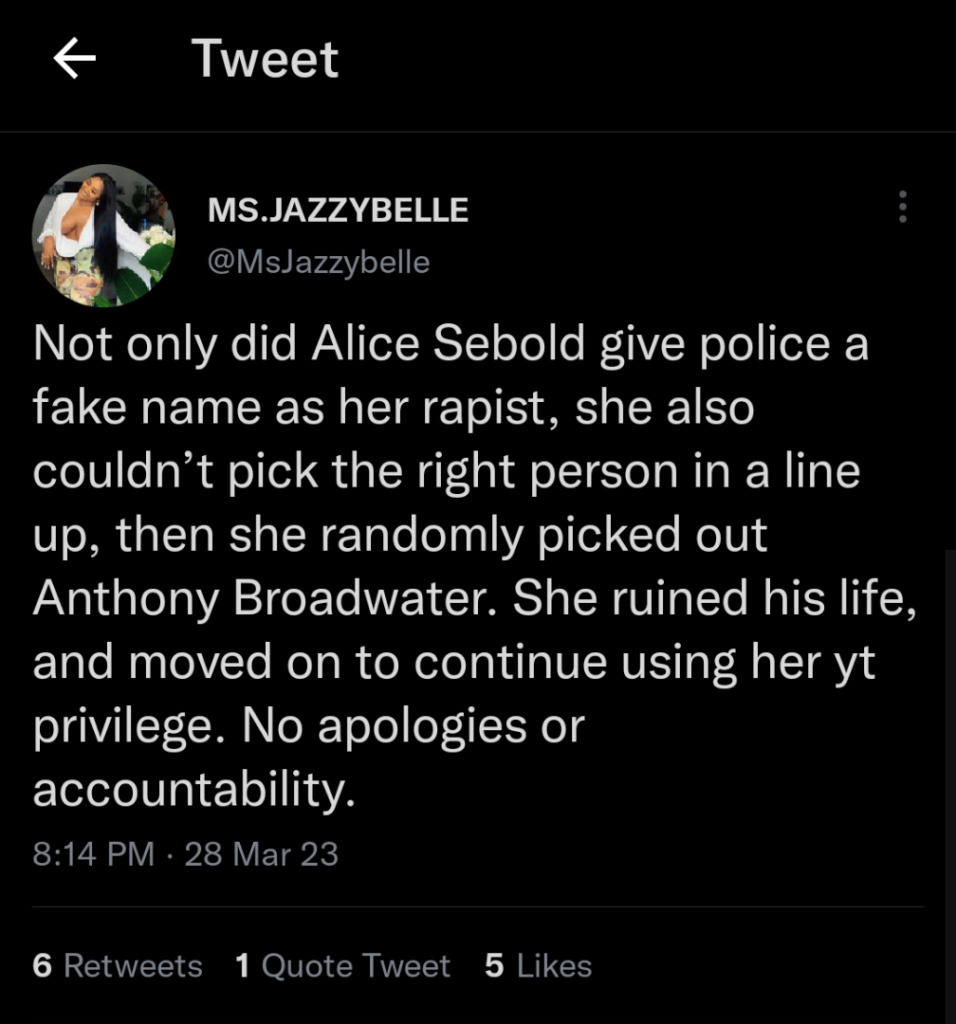New York state has agreed to pay $5.5 million to a man who was exonerated after spending 16 years in prison for the rape of award-winning novelist Alice Sebold when she was a student at Syracuse University in 1981.

The settlement comes after Anthony Broadwater’s conviction for raping Sebold in 1981 was overturned in 2021.
It was signed last week by lawyers for Broadwater and New York Attorney General Letitia James, David Hammond, one of Broadwater’s attorneys, said.
“I appreciate what Attorney General James has done, and I hope and pray that others in my situation can achieve the same measure of justice. We all suffer from destroyed lives.”
Broadwater, 62, said in a statement relayed by Hammond
“Obviously no amount of money can erase the injustices Mr. Broadwater suffered, but the settlement now officially acknowledges them,” Sebold said in a statement released through a spokesperson.

Sebold was an 18-year-old first-year student at Syracuse when she was raped in a park near campus in May 1981. She described the attack and the ensuing prosecution in a memoir, “Lucky,” published in 1999.
Sebold went on to win acclaim for her 2002 novel “The Lovely Bones,” which recounts the aftermath of a teenage girl’s rape and murder and was made into a movie starring Saoirse Ronan, Susan Sarandon and Stanley Tucci.
Sebold, who is white, wrote in “Lucky” that she spotted a Black man in the street months after being raped and was sure that he was her attacker.
“He was smiling as he approached. He recognized me. It was a stroll in the park to him; he had met an acquaintance on the street,” Sebold wrote. “ ‘Hey, girl,’ he said. ‘Don’t I know you from somewhere?’ ”
Police arrested Broadwater, who was given the pseudonym Gregory Madison in “Lucky.” But Sebold failed to identify him in a police lineup, picking a different man as her attacker.
Broadwater was nonetheless tried and convicted in 1982 after Sebold identified him as her rapist on the witness stand and an expert said microscopic hair analysis had tied Broadwater to the crime. That type of analysis has since been deemed junk science by the U.S. Department of Justice.






GIPHY App Key not set. Please check settings